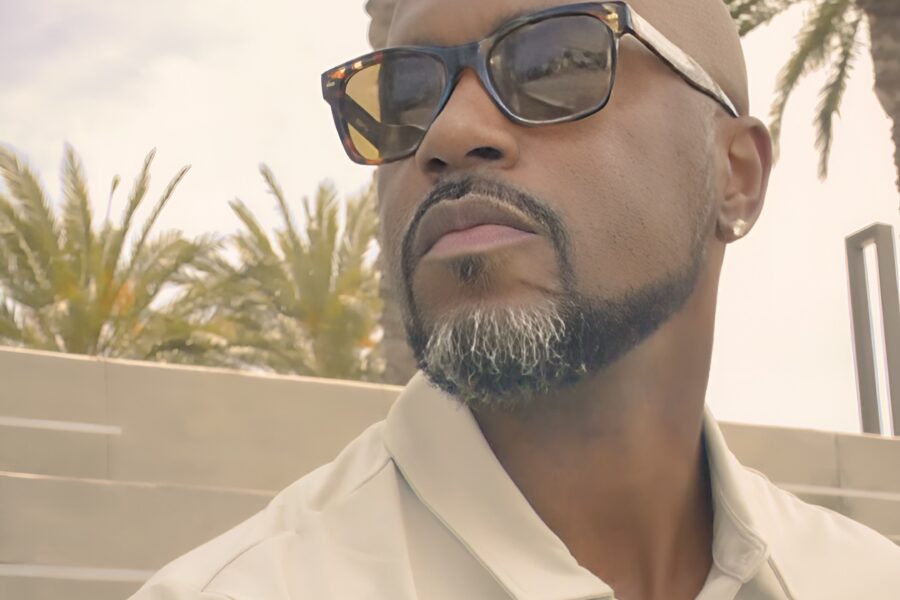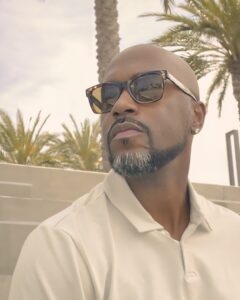
When Jimmy Rollins was winning an MVP and a World Series for the Phillies in 2007 and 2008 the future was just that, the future. All Rollins wanted then was another MVP season and more importantly another World Series title.
It wasn’t until 2015 when his career began to wane, and the second MVP award and World Series championship never happened, that it started to hit him. Even then, though, at 36 years old and in his 16th Major League season, he wasn’t sure what the future held.
“I was with the Dodgers, and it happened,” Rollins said of his first post-playing discussion. “(But) it was because I was approached. I think everyone’s initial thought about retirement (and) let’s not fool ourselves, everyone knows when it’s coming to an end no matter how you look at it. There are always more years behind you than ahead of you.”
Now 45 years old, Rollins is living in Los Angeles and working for TBS on The Tuesday Night Game of the Week and for MLB as the co-chair for the Commissioner’s Ambassador program. How did it all happen? It started during an off night for him at Dodger Stadium in 2015 when some TV people approached him, on the word of former Phillies teammate Doug Glanville, about doing some broadcasting.
“I looked at them like they were crazy,” Rollins said. “What do you mean? I’m still playing, first of all. And I’m not doing any broadcasting.”
Rollins had done some work with Fox during the World Series while he was still playing. But that was for fun, not for a career. Then when he was released by the Chicago White Sox in 2016, he gave it a second, and more serious, thought.
“I sat around for a month in the twilight zone,” he said. “It was 4 o’clock, I should be at the field. Instead, I’m sitting on my couch looking at a Ferris wheel. I wanted to stay relevant in the game and I knew I couldn’t take too much more time off.”
Rollins reached out to former Major League star Gary Sheffield who got into broadcasting after his 22-year career ended in 2009.
“I asked him how he got into it,” Rollins said. “He said it was perfect timing. Two days later I was in Atlanta interviewing, and I got the gig.”
Asked if coaching was ever a thought, Rollins laughed.
“Two words,” he said. “Hell no.
“When I retired it was, do I want to travel, play golf, get into tournaments? Then you get there, yeah that’s cool, but there’s more to life than that. Like I said I wanted to stay relevant in the game.”

THERE IS ALSO THE ADJUSTMENT
period that comes with going from hearing the applause, and in some cases boos, every night for 162 nights, the on-field competitiveness and the off-field camaraderie of a clubhouse. All of that vanishes when the playing days end.
“I miss October,” Rollins admitted. “I don’t miss 162 at all. Every day, every night, no. But October, it’s changed a little now, but it was that the first one to win 11 games is World Series Champion. Every night was big. It was all on the line. That I miss. That’s where greatness shows. That’s where you can show your knowledge, to have to prepare for a million things that may never happen. But I enjoyed all of that. Because all of your knowledge, your savvy comes to fruition to try to win those 11 games.”
Rollins spent 2019 and 2020 in the Phillies broadcast booth doing about a dozen or so games a year with regulars Tom McCarthy and John Kruk.
Of course, he enjoyed that because Phillies fans will always love Rollins, Chase Utley, Ryan Howard, Cole Hamels and the rest of the 2008 team that ended the team’s 28-year championship drought and the city’s 25-year drought.
“That will always be the benchmark, the team that will always be compared to,” Rollins said of 2008. “And 95 percent of us were Philly draft guys. When I was drafted in ’96 they were a bad team and it looked like they would never win. But we knew what we had. Give Ed Wade a lot of credit, for having a vision, even though he didn’t get the chance to see it through. He drafted us. He saw that these were the guys who were going to change Phillies baseball.”
That core group of players from 2008 keep in touch, sometimes in person, often through group chats. Some plan to meet up in London this season when the Phillies play the Yankees there.
ROLLINS PLANS TO FIND THE TIME
between his work on TBS and his other job with MLB. That was an even longer shot than him becoming a broadcaster.
Two friends and former players CC Sabathia and Raul Ibanez were working in the Commissioner’s office and Rollins kind of wanted to know why.
“I knew they worked in the office of the Commissioner,” he said. “I didn’t know in what capacity. But to me, it was, ‘What the hell are you doing?’ Our whole career we fought the other side.”
Rollins met Sabathia for lunch in Atlanta when CC’s son was at Georgia Tech and one thing led to another and eventually a job with Commissioner Rob Manfred.
“My first question was, ‘What the hell are you doing? Make this make sense to me.’ I didn’t understand what players were doing in the Commissioner’s office,” Rollins said. “He explained to me what he does and how Rob really wants to improve the game. And how he appreciates his thoughts and knowledge. That helped, but I wanted to talk to Raul, too.”
They spoke on the phone and Ibanez sold him on Manfred wanting to make the game better and how former players could help that.
“I wanted to help make the game better, but I also wanted to be there for the former players,” Rollins said. “A peeve of mind, you almost have to do a 30 for 30 to find out what happened to certain guys. They’re not at the World Series. They’re not at All-Star games. They might do things with their teams, but that’s it.”
Manfred listened and brought in Rollins and Ryan Howard as the co-chairs for the ambassador program. In its second year, it’s begun to grow.
“Rob said he wanted to make sure the people who made the game what it is be a part of it,” Rollins said of his conversation with the commissioner. “It started as word-of-mouth last year at the World Baseball Classic. Before you knew it, we had a whole suite of young guys, old guys, former players, celebrities, all hanging with us. This is what we wanted. It just kind of grew from there.”
What has also grown is Rollins percentage of votes for the Hall of Fame from 9 percent to 12.9 to 14.8. But it’s still a long way from being enshrined in Cooperstown. Does it bother the 2007 MVP and 2008 World Series Champion?
“No, it doesn’t,” he said. “You understand how it goes. How they grade a player or consider you a Hall of Famer. If you win, and you made an impact in a positive way it’s not all in the numbers. What I saw the most valuable in myself was I showed up to win and I was going to help us win some way, somehow. Some things go beyond the numbers. I was involved in changing the way people saw baseball in Philadelphia. I was a part of that change in the attitude of who we were…. When you think of all of that what more do you really want? And to play that position as long as I did in that city, I don’t know.”
Photos: Courtesy of MVP Sports Group; Philadelphia Phillies

